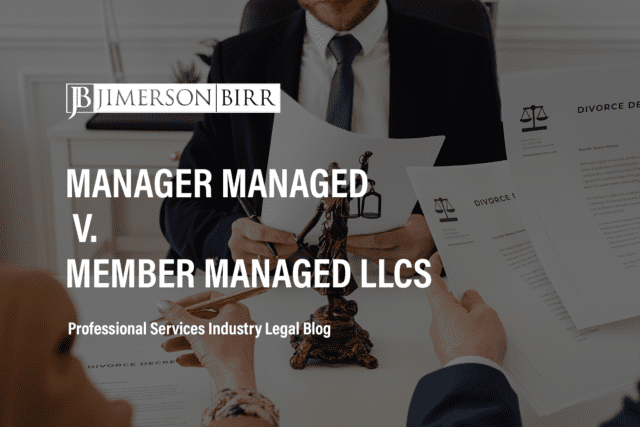Which Florida and federal laws and regulations apply to corporate governance analysis?
Florida has specific laws and regulations governing corporate governance, including reviewing and updating charter and corporate bylaws. For example, the Florida Business Corporation Act (FBCA), Chapter 607 of the Florida Statutes, outlines the requirements and procedures for forming, managing, and dissolving corporations in the state. This statute also guides critical corporate governance issues, such as the fiduciary duties of directors and officers, shareholder rights, and the adoption and amendment of bylaws.
In addition to the FBCA, corporations must comply with federal laws and regulations impacting corporate governance. For instance, the Sarbanes-Oxley Act of 2002 and the Dodd-Frank Wall Street Reform and Consumer Protection Act of 2010 impose specific governance and reporting requirements on publicly traded companies. These federal laws seek to improve corporate transparency, protect investors, and prevent corporate fraud.
By adhering to Florida and federal laws and regulations, corporations can ensure that their governance practices (i.e., reviewing and updating charter and corporate bylaws) align with best practices and legal requirements.
Need help with a matter related to best practices for corporate governance analysis? Schedule your consultation today with a top corporate and board of directors governance and operations attorney.
What issues regarding corporate governance analysis commonly lead to litigation?
The following issues are among the most common in litigation involving best practices for corporate governance analysis:
- Conflicts of Interest: Cases may arise when board members or executives have personal interests that conflict with the company’s interests, leading to potential breaches of fiduciary duties.
- Inadequate Disclosure: Litigation may result from insufficient disclosure of material information to shareholders, such as financial performance, executive compensation, or related-party transactions.
- Shareholder Oppression: Minority shareholders may claim unfair treatment of their rights by the majority shareholders or the board.
- Breaches of Fiduciary Duties: Board members and executives may face liability for failing to act in the company’s best interests or for making decisions that are not in line with corporate governance best practices.
- Ineffective Board Oversight: Lawsuits may result from a lack of proper oversight by the board, leading to financial losses or mismanagement.
What are effective measures to minimize the risk of litigation over corporate governance analysis?
Implementing the following strategies may help mitigate risk:
- Establish Clear Corporate Governance Policies: Draft comprehensive corporate governance guidelines that outline the roles and responsibilities of the board and management, as well as the expectations for ethical conduct and compliance with laws and regulations.
- Regularly Review and Update Bylaws and Charters: Conduct periodic reviews to ensure corporate documents remain current and compliant with evolving legal and regulatory requirements.
- Implement Robust Disclosure Practices: Ensure accurate and transparent disclosure of material information to shareholders, including financial performance, executive compensation, and related-party transactions.
- Maintain an Independent and Diverse Board: Appoint a board with a mix of skills, backgrounds, and experiences, with a majority of independent directors to provide unbiased oversight and decision-making.
- Provide Ongoing Director Education: Offer training and resources to help directors stay informed about industry trends, regulatory developments, and best practices in corporate governance.
- Encourage Shareholder Engagement: Maintain open lines of communication with shareholders and provide opportunities to voice their opinions and concerns.
- Implement an Effective Risk Management System: Develop a comprehensive risk management framework to identify, assess, and mitigate potential risks that could lead to litigation or financial losses.
When a set of facts is appropriate to meet litigation requirements, there are many paths a claimant may take. We are value-based attorneys at Jimerson Birr, which means we look at each action with our clients from the point of view of costs and benefits while reducing liability. Then, based on our client’s objectives, we chart a path to seek appropriate remedies.
To determine whether your unique situation may necessitate litigation, please contact our office to set up your initial consultation.
Frequently Asked Questions
- What is the importance of updating corporate bylaws?
Updating corporate bylaws ensures they align with the company’s evolving strategic goals, industry trends, and regulatory requirements. In addition, regularly reviewing and updating bylaws helps to maintain effective corporate governance and mitigate the risk of litigation.
2. How often should the board review the charter and corporate bylaws?
There is no one-size-fits-all answer, as the appropriate frequency depends on factors such as the company’s size, industry, and regulatory environment. However, reviewing the charter and bylaws at least annually or whenever significant changes occur in the company’s operations, regulatory landscape, or industry best practices is advisable.
3. What role do shareholders play in corporate governance analysis and implementation?
Shareholders play a crucial role in corporate governance by electing the board of directors, approving major corporate decisions, and holding the board accountable for their actions. Shareholders can also voice concerns and provide input on corporate governance matters during annual meetings or through other communication channels. Active shareholder participation helps ensure the company’s governance practices align with its interests and overall business objectives.
Have more questions about governance or operations for your business?
Crucially, this overview of best practices for corporate governance analysis does not begin to cover all the laws implicated by this issue or the factors that may compel the application of such laws. Every case is unique, and the laws can produce different outcomes depending on the individual circumstances.
Jimerson Birr attorneys guide our clients to help make informed decisions while ensuring their rights are respected and protected. Our lawyers are highly trained and experienced in the nuances of the law, so they can accurately interpret statutes and case law and holistically prepare individuals or companies for their legal endeavors. Through this intense personal investment and advocacy, our lawyers will help resolve the issue’s complicated legal problems efficiently and effectively.
Having a Jimerson Birr attorney on your side means securing a team of seasoned, multi-dimensional, cross-functional legal professionals. Whether it is a transaction, an operational issue, a regulatory challenge, or a contested legal predicament that may require court intervention, we remain a tireless advocate every step of the way. Being a value-added law firm means putting the client at the forefront of everything we do. We use our experience to help our clients navigate even the most complex problems and come out the other side triumphant.
If you want to understand your case, the merits of your claim or defense, potential monetary awards, or the amount of exposure you face, you should speak with a qualified Jimerson Birr lawyer. Our experienced team of attorneys is here to help. Call Jimerson Birr at (904) 389-0050 or use the contact form to schedule a consultation.
Here are some blogs written by JB attorneys that provide more information about best practices for corporate governance analysis:

We live by our 7 Superior Service Commitments
- Conferring Client-Defined Value
- Efficient and Cost-Effective
- Accessibility
- Delivering an Experience While Delivering Results
- Meaningful and Enduring Partnership
- Exceptional Communication Based Upon Listening
- Accountability to Goals











